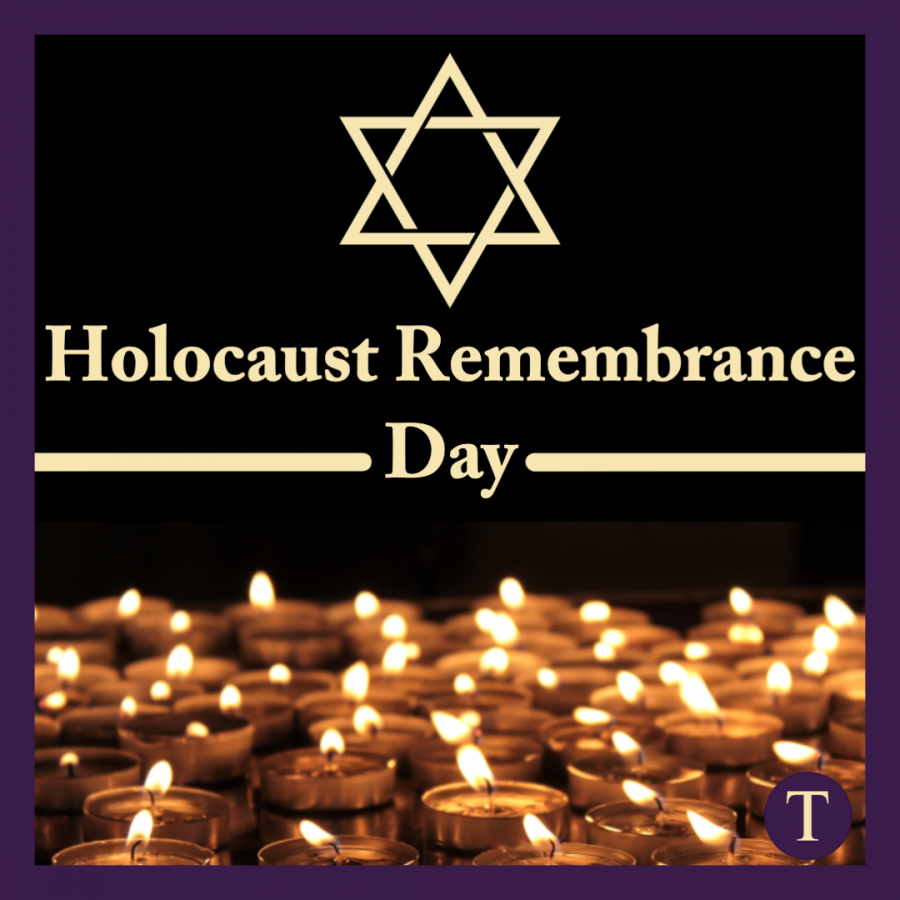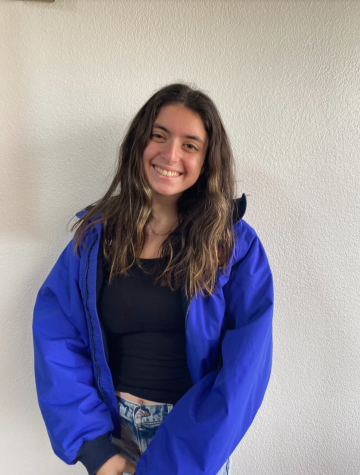What we can learn from Holocaust Remembrance Day
Today we remember the 6 million Jewish lives lost due to the Holocaust.
January 27, 2021
We view history as a timeline of progress and change. Typically, we analyze timelines because they tell us the cause and effect of major events. As time progresses, so does our timeline. All too often, we find repetition within our timeline, specifically when it comes to the oppression of certain ethnic, racial and religious groups. The anti-semitism which has continually occurred against Jews for centuries is a prime example. With the rise of antisemitism in America, who will be there to vocalize our historical story and work to combat anti-semitism? Us.
It is up to us as members of the Masters Community––whether we are Jewish and not––to fight this pattern vigorously by vocalizing the story of the Jewish people and by taking active steps to combat antisemitism.
Just during Hanukkah in 2020, a Jewish holiday also known as the Festival Of Lights, there were several antisemitic attacks all around the country. On Dec. 13, an attacker came to the University of Kentucky Jewish Center, yelling antisemitic slurs and then proceeding to run over a Jewish man, during their Menorah lighting. On Dec. 14, there was a cyber attack on the North Shore Hebrew Academy’s school website, a Jewish day school in Long Island, N.Y., including disturbing images and videos of Nazis marching around concentration camps alongside hate speech and symbols; the hackers also called the school “North Shore Concentration Camp,” referring to the Jews as “rats”. On Dec. 15, the only Anne Frank memorial in the United States was defaced with swastikas beside the words, “We are everywhere” in Boise, Idaho.
In our current timeline, Jan. 27 marks exactly seventy-six years since the liberation of one of the most deadly concentration camps, Auschwitz. In this camp alone, over one million Jewish lives were brutally taken away. If we fast forward in the timeline, today marks 21 days since a man wearing a shirt reading “Camp Auschwitz” centered around bones with the word “staff” on the back, as well as antisemitic symbols and waving Nazi flags rioted the capital of the United States.
Sophomore Maddie Marlowe said, “Seeing somebody wearing a Camp Auschwitz sweatshirt was absolutely horrifying and disgusting. It upsets me that someone could be so insensitive to a group of six million people who were murdered because of their religious beliefs.”
We look at the Holocaust as an isolated incident of the past that will never happen again, but how far have we come?
Following World War II, two out of every three European Jews had been killed. Today, we remember and honor the six million lives that were brutally tortured and murdered during the Holocaust. Instead of looking at these lives as statistical figures, look at them as people. People who went days without a crumb of food, were dehumanized, viewed as “lives that were not worth living” and many of which died of disease, were shot or spent their last seconds struggling for one last breath in a gas chamber. And, for the people who survived, we regard them as lucky. Lucky that they witnessed the murdering of their loved ones, and lived each day fearing that they were next. Before being sent to the gas chamber, the father of Auschwitz survivor Max Eisen said to him, “If you manage to survive, you have to tell the world what happened here.”
Since 2018, acts of hatred towards Jews have increased by 58 percent. With Jews only making up .2 percent of the world population and the number of Holocaust survivors alive decreasing every year, it is up to our generation to keep their stories alive. Antisemitism is on the rise in our country and is often ignored; as a Jewish person in America, just like my peers, I try to educate and vocalize against any form of racial discrimination or prejudice, but when it’s towards Jewish people, it feels as if many no longer feel the need to advocate against hateful speech and prejudice.
According to the Southern Poverty Law Center, 99 of the 917 known hate groups in America are Neo-Nazi groups, and 10 deny the occurrence of the Holocaust. In his article “Why Holocaust Jokes aren’t Funny”, Oliver Piowtraski, staff writer for The Southerner, expressed that making Hitler jokes, concentration camp jokes, or any Holocaust-related joke is extremely hurtful and harmful to the Jewish community.
“These people are still out here, they still hurt people, and your jokes make the situation seem unimportant and seemingly okay. The suffering of human beings is not a joke, the suffering of any living creature is not a joke,” he wrote.
Today, on Holocaust Remembrance Day, use the historical timeline as a demand for change. We must all come together to educate, vocalize, and fight antisemitism before it’s too late. As senior Dani Saril said, “Being Jewish is something to be proud of, not something to hide. Yet, I’ve never felt as afraid to publicly practice Judaism as I do now.”







joe eisner • Jan 28, 2021 at 1:38 PM
Hillel’s words from the 1st century BCE: “If I am not for myself, then who will be for me? And if I am only for myself, then what am I? And if not now, when?”
If anti-semitism or other hatreds are allowed to flourish they will flourish because those filled with hate are, unfortunatley, very motivated by their hatred. We all need to call hatred when it occurs to prevent it spreading like a cancer.